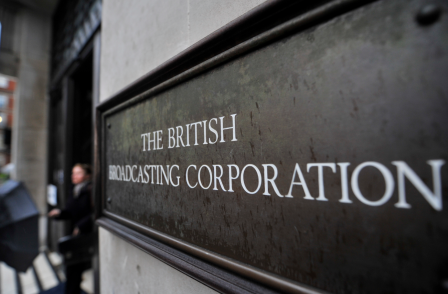
The total remuneration paid to BBC executive board members increased by 61 per cent from £2.56 million last year to £4.13 million.
The majority of the increase was accounted for by £1.45 million in redundancy settlements and legal fees paid to departing staff. This included £577,000 for former director general George Entwistle and £683,000 for chief operating officer Caroline Thomson.
Director of radio and former head of news Helen Boaden received £101,000 in legal costs after she was criticised in the Pollard Review – the BBC’s probe into the management team’s failings in dropping a Newsnight investigation into Jimmy Savile. Ex-director general Mark Thompson had £86,000 of legal fees paid by the corporation.
Even without the pay-offs, the total pay packages for BBC executives was £128,000 higher than in 2011/12.
A BBC spokesperson said: "The remuneration for [director general] Tony Hall’s new Executive Board will be 8% lower than in 2011/12.
"Excluding one-off costs for severance payments, legal and associated costs for the Pollard Review, personnel changes the Executive Board remuneration for 2012/13 was broadly level with the previous year."
In its annual report, the BBC reported a 16 per cent fall in its surplus – the differential between its revenue and costs – for 2012/13. The corporation made surplus of £328 million, down from £381 million in 2011/12.
Last year’s surplus included a £95 million profit on the sale of BBC Worldwide’s magazine business and £45 million of exceptional pension fund income. This year’s figure includes £78 million the corporation made from the sale of Television Centre.
Without these one-off items, the surplus rose slightly from £249 million to £250 million.
The annual report also showed that the BBC was cutting the cost of paying its highest-earning stars. Payments to performers earning more than £500,000 fell by £4.2million from £16.5 million to £12.3 million. Spending on “top talent” accounting for 6 per cent of overall talent spend, down from 12 per cent in 2008/09.
Overall, the BBC said it produced savings of £580 million in 2012/13 as part of its Continuous Improvement programme, designed to drive efficiency in the organisation. Since 2008, the programme has produced more than £2 billion in savings.
BBC income for the year to the end of March 2013 was £5.1bn, of which £3.7bn came from the Licence Fee. This compares with income of £5.09bn (£3.6bn from the Licence Fee) for the year to March 2012.
Email pged@pressgazette.co.uk to point out mistakes, provide story tips or send in a letter for publication on our "Letters Page" blog
